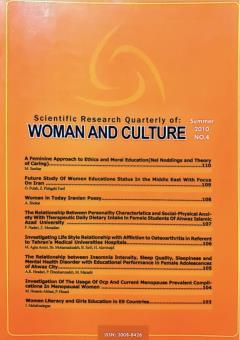Survey of women's education and training in the world's most populous countries (E9)
Subject Areas : Sociology
1 - Islamic Azad University, Department of Psychology, Khorasgan Branch, Iran
Keywords:
Abstract :
In this article, the studies conducted by UNESCO from the comparative analysis of the nine most populous countries of the world known as E9 (Bangladesh, Brazil, China, Egypt, India, Indonesia, Mexico, Nigeria and Pakistan) have been discussed. The increasing national efforts of these countries were carried out around a study whose official document was presented by Wolfgang Follmann, the coordinator of UNESCO. In this document, the role of women as educators in the family, school, community, and in administrative and social life was considered in educational plans and programs for growth and development. Statistical information and data showed that, except for Nigeria, the basic growth and progress in education and training of women can be seen in all regions, on the outskirts of cities and villages. Also, the studies show that the educational levels of parents, especially mothers, had a decisive role in the educational status of children, especially girls, and the encouragement and basic education and continuing education of girls. In the implementation of continuous public education in E9 countries, women and girls were mobilized to take advantage of their abilities, creativity and skills in educational plans and programs for inclusive growth and development. In general, the member countries accepted the fact that despite the outdated and inhibiting attitudes and obstacles in some areas, women should be at the center of all reform programs of the society. These countries have a set of models that can be followed for the world in the initial programs of education and training for women and girls.
_||_


